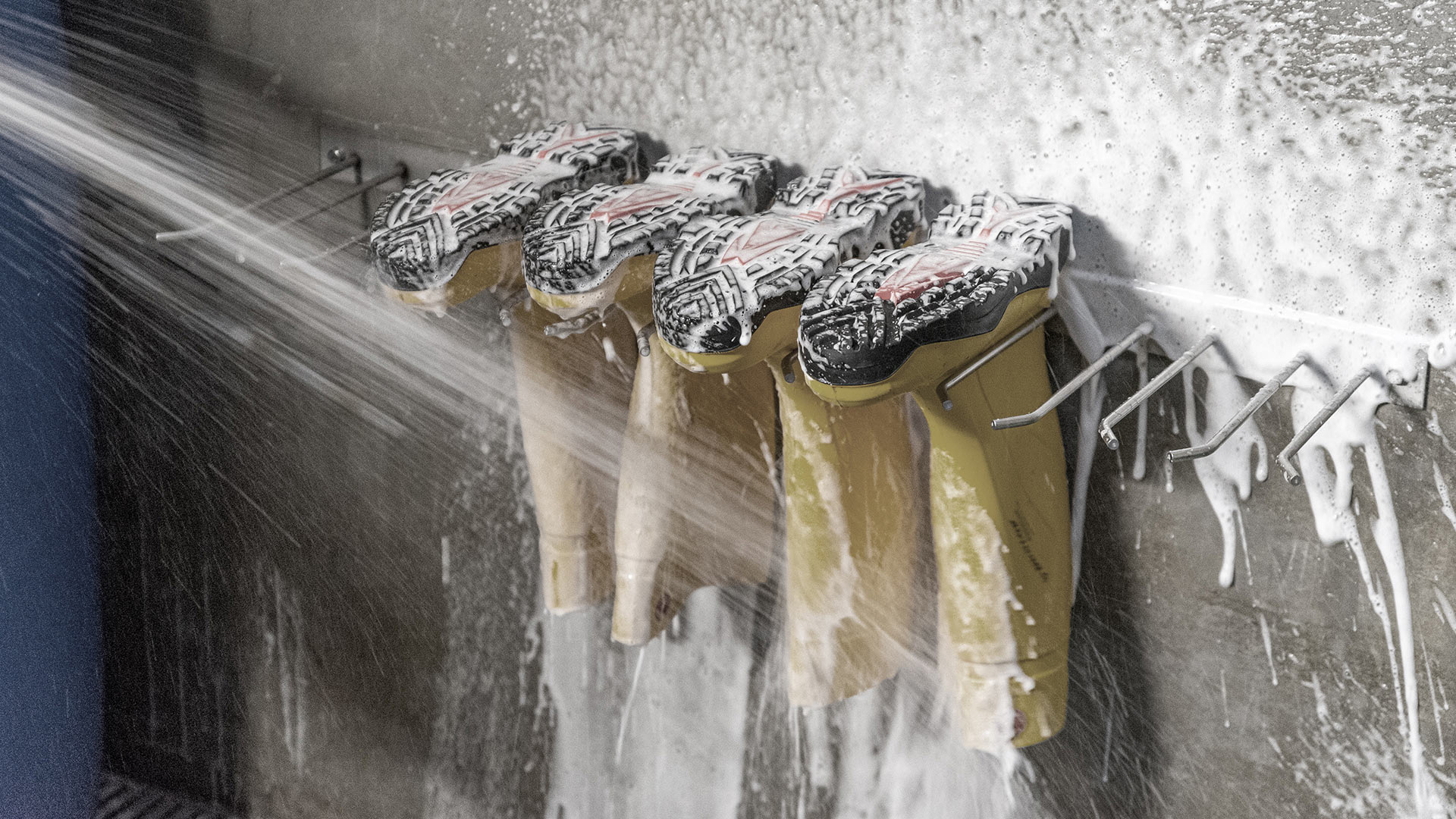E coli
in poultry
Problematic growth of E. coli infections occurs when animals have additional health problems that make them susceptible to disease. The goal is to reduce the likelihood of problematic growth of E. coli, this can be done by reducing the disease burden on animals. How do you reduce the disease burden of E. Coli on poultry?
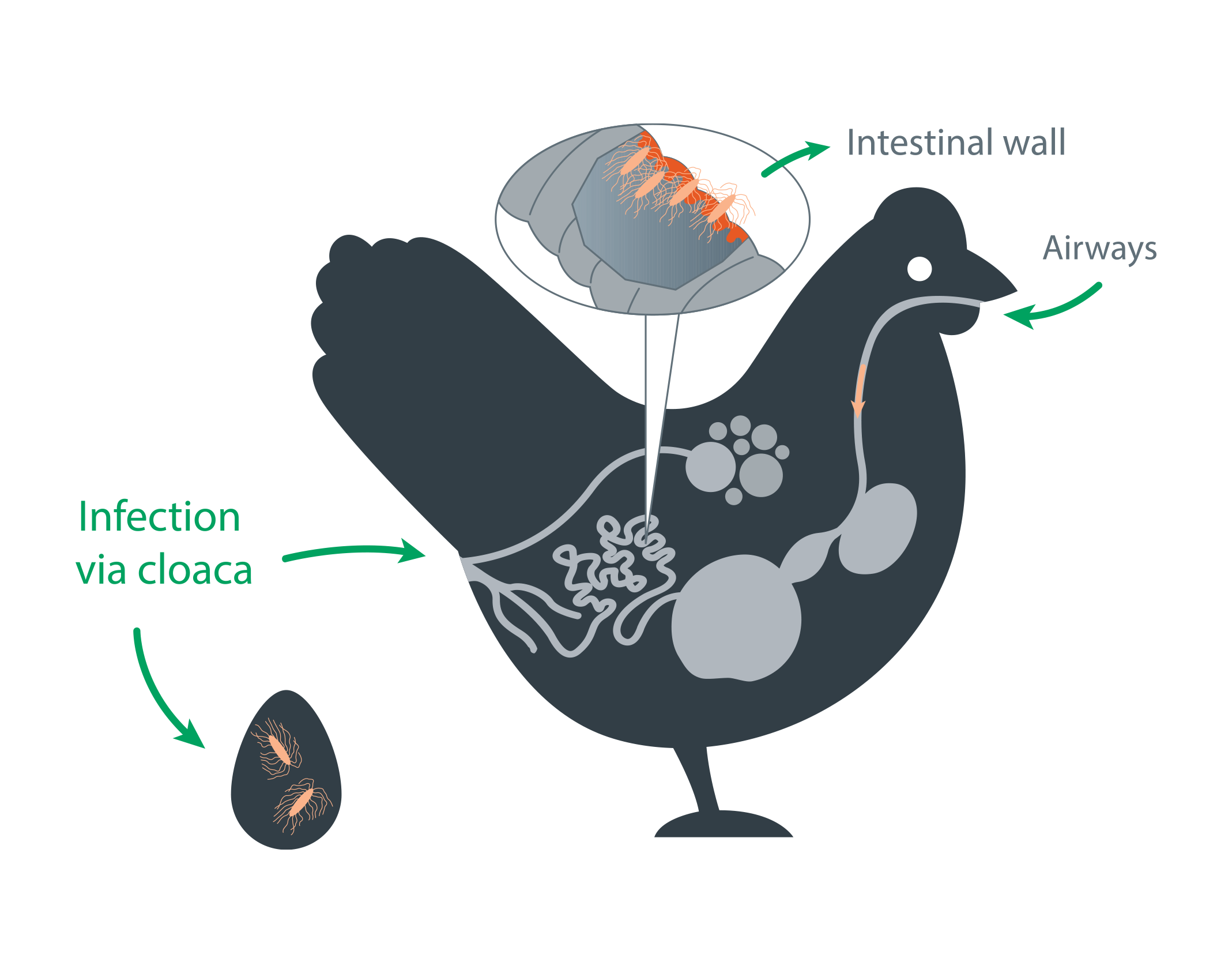
The costs of E coli
Loss of productivity
Lower growth
Loss of revenue per hen
Prevention is key
Learn about measures you can take that make impact
How cleaning helps prevent E.Coli infections.

How disinfecting helps prevent E.Coli infections
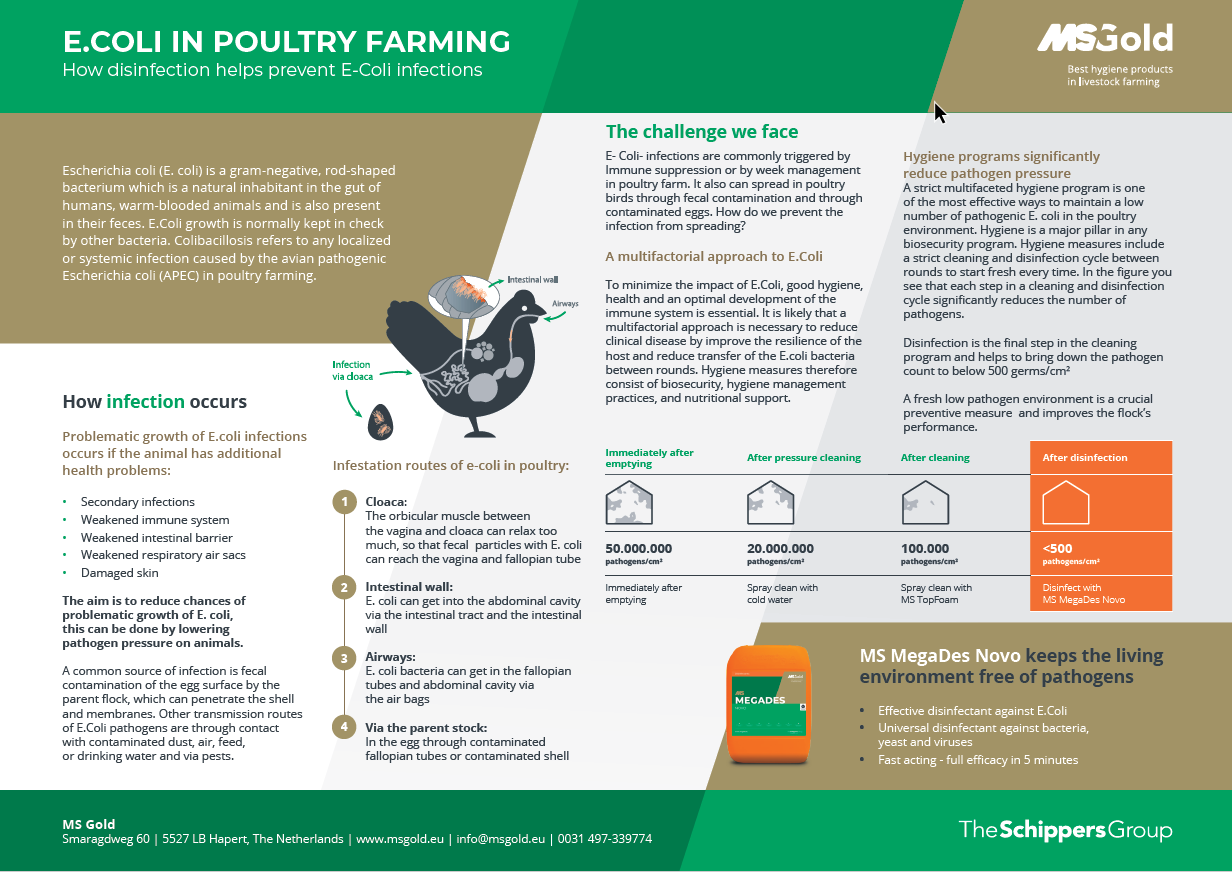
Why clean drinking water is a precondition for healthy animals
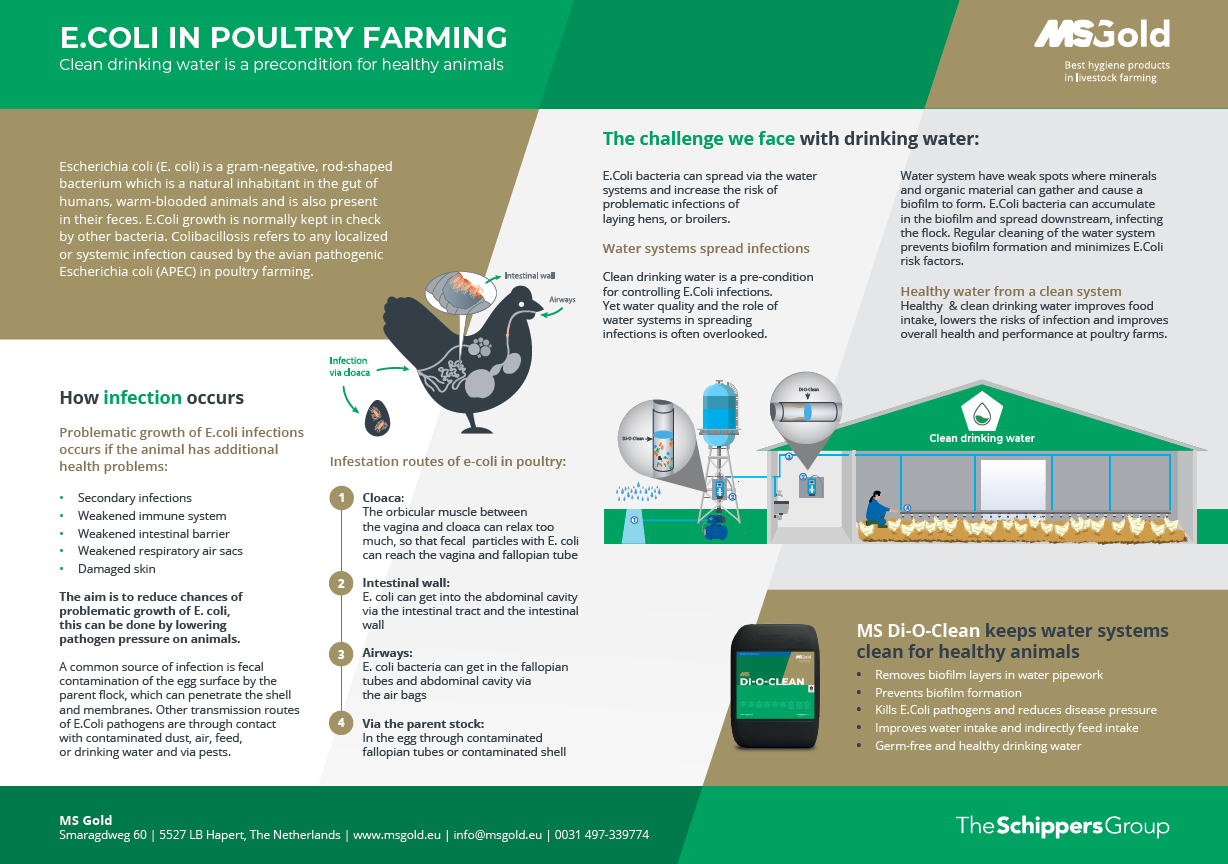
How hygiene powder contributes to the prevention of e.coli infections
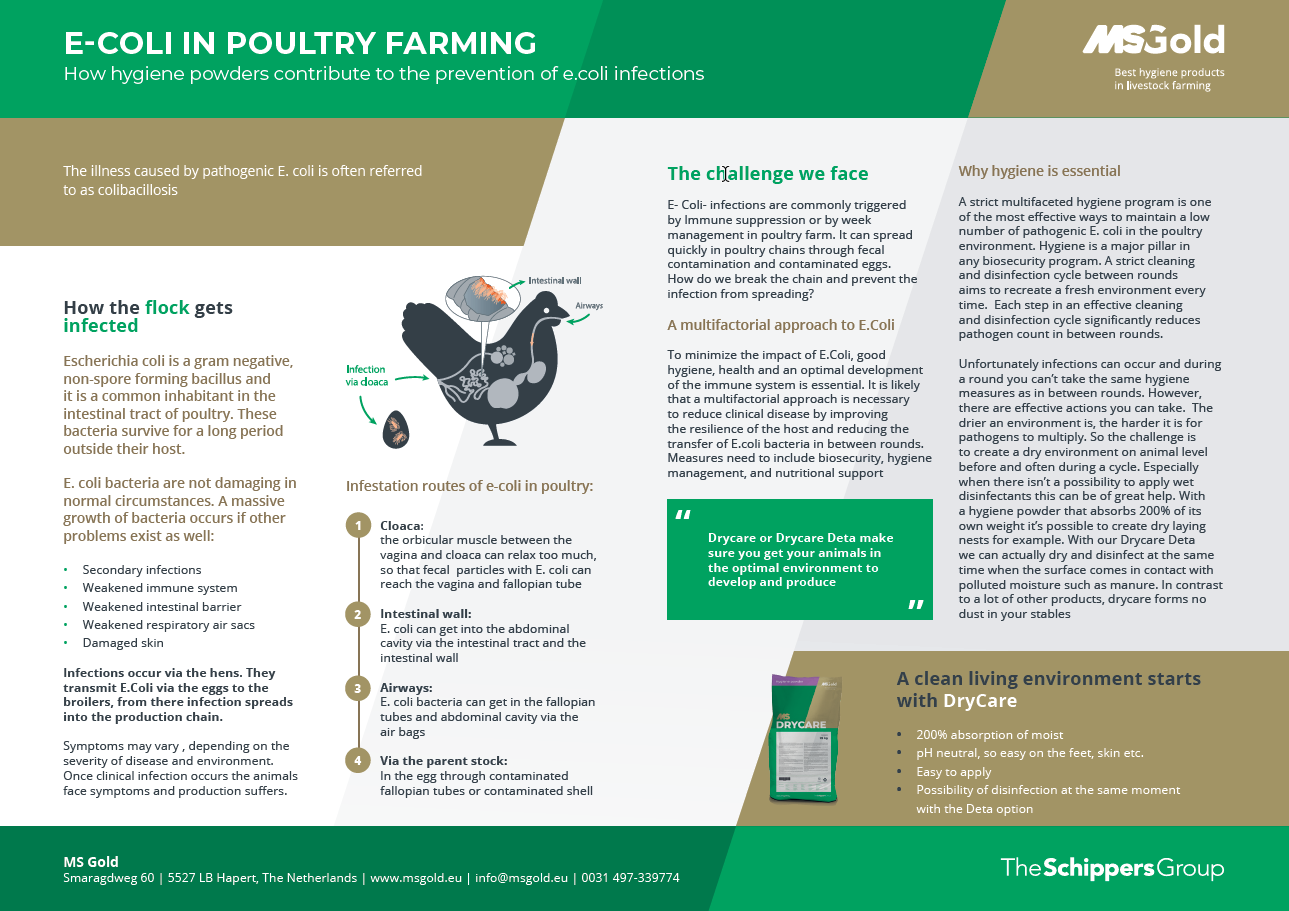
How cleaning helps prevent E.Coli infections.
Summary:
We explain how e.coli infections spread and about the role of cleaning in a prevention program.
E. Coli infections are commonly triggered by poor hygiene management in poultry farms, creating a high pathogen environment. What measures do you need to take?
What you learn in this paper
- How to reduce the germ pressure
- How to prevent infection from happening
- The importance of good detergent
- Why we recommend MS TopFoam
How disinfecting helps prevent E.Coli infections
Summary:
In this one page summary you will learn how E.coli infections spread and about the role of disinfection in a prevention program.
Problematic growth of E.coli infections occurs if the animal has additional health problems, lowering it's resistance to germ pressure from the environment.
Key topics:
- How E.coli infections enter a flock.
- Why hygiëne measures are crucial in a biosecurity program.
- Why disinfection is important to combat E.coli.
- Why you should use MS MegaDes Novo as disinfectant.
Why clean drinking water is a precondition for healthy animals
Summary:
We explain how E.coli infections spread and why clean drinking water is critical in a prevention program.
Animals with underlying health problems have a higher chance on infections, as their lower resistance makes them more susceptible to germs i.e. in unclean drinking water.
Key topics:
- How E.coli infections enters a flock.
- Why clean drinking water is crucial in a biosecurity program.
- How to ensure clean drinking water when dealing with E.coli.
- Why we recommend Di-O-Clean to help prevent E.coli.
How hygiene powder contributes to the prevention of e.coli infections
What you will find in this download:
In this one pager you will find detailed information on E.coli infections.
A dry living environment helps to prevent the spread of E.coli.
Key topics:
- How E.coli infections spread in a flock
- How to break the chain of infection
- Why Hygiene is vital
- Why a dry living environment lowers pathogen pressure.
How Organic Acids improve resistance to e.coli infections
What you will find in this download:
In this one pager you will find detailed information on E.coli infection.
Gut health is an important factor to help prevent infection.
Key topics:
- How e.coli spreads in poultry farms
- What actions you can take to prevent problematic e.coli infections
- The role of gut health in preventing infection
- How organic acids keep your animals healthy







